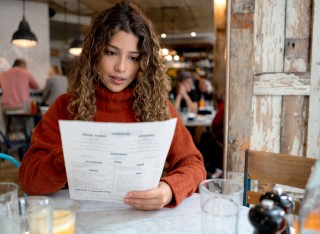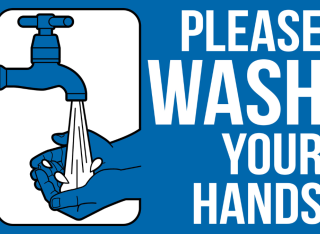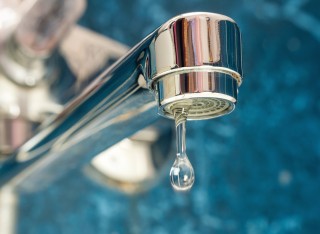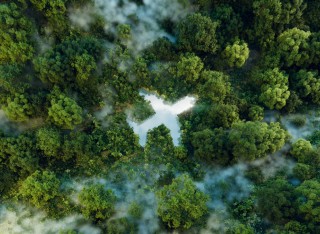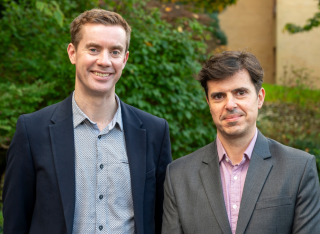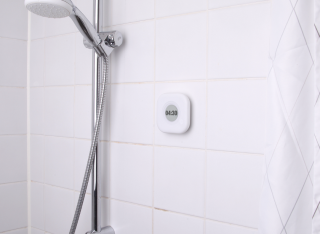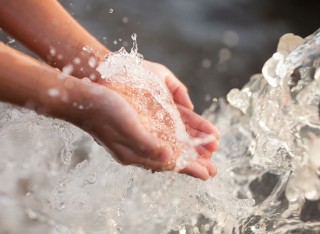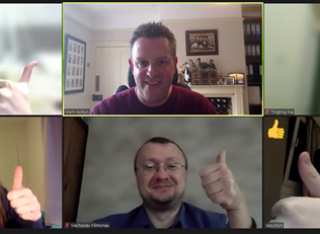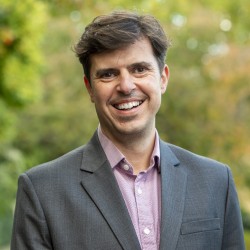
Dr Pablo Pereira-Doel
Academic and research departments
Faculty of Arts, Business and Social Sciences, Surrey Business School, Surrey Hospitality and Tourism Management, Institute for Sustainability.About
Biography
I am co-director of the Human Insight Lab at Surrey Business School and a Fellow of the Institute for Sustainability at the University of Surrey. My research examines how everyday resource-use behaviours, particularly water use, can be understood, measured, and redesigned to support environmental sustainability. Drawing on behavioural science, environmental psychology, data analytics, and design research, I study the structural and contextual drivers of behaviour using sensor technology and biometric methods (eye-tracking, galvanic skin response, facial-expression analysis) in laboratory, field, and hybrid experiments across real-world settings such as homes, student accommodation, hotels, healthcare facilities, and product-use contexts. Much of my work is co-created with industry and policy partners to translate evidence into practical, measurable impact. I aim to make sustainable behaviour intuitive and rewarding, showing how context redesign and digital innovation can change what people feel and do.
Areas of specialism
University roles and responsibilities
- Human Insight Lab co-director
- FABSS representative Open Research Working Group
Affiliations and memberships
News
In the media
ResearchResearch projects
The UK is facing an unprecedented water crisis, with a staggering deficit of 4 million litres per day (England) predicted by 2050. As domestic supply cuts and soaring prices become a reality, the University of Surrey is stepping up to confront this existential threat head-on with a new ESRC IAA funded project aimed at revolutionising how we manage water consumption in our homes.
The project builds on previous successful research led by Dr Pablo Pereira-Doel, which focused on understanding and mitigating water consumption through in-shower technology. This work showed that demand-side water use can be reduced, without impacting consumer experience, through technology-assisted behaviour change.
Building on existing collaborative networks, the team will undertake three interlinked work packages that expand Surrey's test-bed activities beyond showering (e.g., toilets, kitchens) to cover 'whole-home' water usage, and engage with water stakeholders to understand industry/consumer needs and collectively develop national solutions.
Research projects
The UK is facing an unprecedented water crisis, with a staggering deficit of 4 million litres per day (England) predicted by 2050. As domestic supply cuts and soaring prices become a reality, the University of Surrey is stepping up to confront this existential threat head-on with a new ESRC IAA funded project aimed at revolutionising how we manage water consumption in our homes.
The project builds on previous successful research led by Dr Pablo Pereira-Doel, which focused on understanding and mitigating water consumption through in-shower technology. This work showed that demand-side water use can be reduced, without impacting consumer experience, through technology-assisted behaviour change.
Building on existing collaborative networks, the team will undertake three interlinked work packages that expand Surrey's test-bed activities beyond showering (e.g., toilets, kitchens) to cover 'whole-home' water usage, and engage with water stakeholders to understand industry/consumer needs and collectively develop national solutions.
Supervision
Postgraduate research supervision
In progress
Safina Naz. Pro-environmental behaviour with pleasure in hospitality: a positive psychology-based hedonic perspective. Co-supervision with Prof Xavier Font & Dr Marion Karl.
Sofie Voss. Nudging for Lasting Pro-Environmental Behaviour in the Tourism Sector. Co-supervision with Prof Xavier Font, Dr Marion Karl, & Prof Florian Kock. ESRC studentship.
Ngan Thi Kim Nguyen. Tourist perspectives on luxury hotel brands: Sustainability as the added value of experience. Co-supervision with Dr Marion Karl. Government of Vietnam studentship.
Sophia Shaw-Brown. Towards public acceptability of water conservation interventions: Understanding water literacy among the general public. Co-supervision with Prof Benjamin Gardner. SEDarc studentship.
Completed
Jenny Suno Wu. A realist evaluation on SMEs in sustainable tourism: how can the socialization of learning re-shape institutional frameworks? Co-supervision with Prof Xavier Font. ESRC studentship.
Sustainable development goals
My research interests are related to the following:
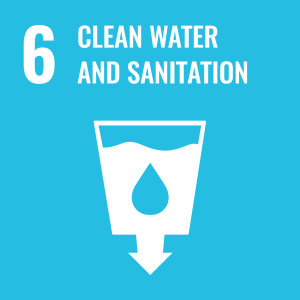



Publications
The research builds for the first time on the boundaries between two sets of literature. First, the motivations of small tourism accommodation providers for acting sustainably. Secondly, how such providers should communicate sustainability to the market. This study examines the reasons why six small tourism accommodations engage in sustainability practices and how that is reflected on their websites. The study (1) exposes three motivations to act sustainably; (2) reflects on some of the challenges encountered when communicating sustainability; and (3) reflects on how the six businesses use persuasion communicating their sustainability practices. This paper highlights the importance of the message, which needs to be credible, customer-focused and persuasive to be effective. All three aspects score low in the businesses analysed, demonstrating a missed opportunity of using sustainability communications to enhance the quality of the product, improve the customer experience, secure marketing advantage and contribute to repeats and referrals.
Hotel guests’ behaviour is crucial to reduce water depletion, energy use and carbon emissions. In this covert field experiment we assessed the effectiveness of real-time feedback provided by smart water-saving technology in fostering hotel guests to shorten their showers. A 12,06% reduction in showering time (N=1,962) confirms that real-time feedback is effective in eliciting pro-environmental behaviour, even in hedonic contexts. Moreover, results suggest that even with no real-time feedback, the regular shower in a hotel may be shorter than at home. Tourism can be a force for good and the use of technology can shape pro-environmental behaviour among the public.
England is projected to face a water supply shortfall of 4 billion litres daily by 2050, mostly due to population growth and increasing climate-driven droughts and flooding. The Environment Act 2021 mandates significant water usage reductions, targeting a decrease for households from the current 144 litres per person/day to 110, and a 15% reduction for businesses. Enhancing water efficiency in showers is crucial, given their high water consumption, energy use and associated carbon emissions.
This study inductively applies the Feedback Intervention Theory by empirically demonstrating the effectiveness of continuous, real-time eco-feedback and its interaction with motivational factors in modifying showering behavior. We conducted a covert true experiment across six tourist accommodations in Denmark, Spain, and the UK, where we deployed smart technology, in the form of a timer to provide the eco-feedback, coupled with persuasive messages. Data from over 17,500 showers showed that continuous, real-time eco-feedback reduced water runtime by 25.79% (CI = 8.24%; 39.98%). When the eco-feedback was paired with the most effective message—priming pro-environmental values and requiring a high effort to comply—water runtime was reduced by 23.55% (CI = 17.53%; 29.13%). The study’s robust experimental design, and its emphasis on actual behavior measurement, highlight the potential of smart technology to facilitate resource conservation.
Objective
Environmental life cycle assessment of hair care products shows that the highest environmental impact is associated with the use phase, rather than conception, production, packaging, distribution or disposal of the products themselves. To measure the water consumed in the use phase, an innovative and cost-effective methodology was developed and tested to measure the water consumed to rinse off hair care products (rinsability).
Methods
Over 4 months, we tested the rinsability of 10 shampoos and 10 hair conditioners applied to 148 females, split between six hair characteristics: length, volume, dryness, thickness, curliness and damage. The volunteers were received in a hair salon on 20 different occasions for about 30 min each time. A team of hairdressers was specifically trained to detect two indicators of when a product is rinsed: a visual disappearance of the product and a clean touch. The volunteers were asked to have their hair washed at home 48 h before their arrival, using a standardized shampoo to control for sebum apparition.
Results
According to this test, on average, 7.1 L of water are needed to rinse a shampoo and 6.3 L to rinse a hair conditioner. However, there are significant differences depending on hair types: long and abundant hair requires more water to rinse shampoos and conditioners, whereas hair thickness, curliness, dryness and damage do not significantly affect the water required.
Conclusion
We suggest that data on product rinsability are essential when considering the water footprint for shampoos and hair conditioners. This method could be adopted for industry-wide experimentation to assess the water footprint of products and set reduction targets.
The report sets out some of the challenges hospitality providers face when communicating with guests on sustainability and identifies four key ways to positively influence guest behaviour.
Insights into hand hygiene practices among patients and guests in a hospital setting.
The COVID-19 pandemic significantly heightened global awareness of hand hygiene as a critical public health measure, with regular and thorough handwashing widely promoted to reduce infection transmission. However, less is known about current hand hygiene behaviour. In collaboration with a Danish hospital, a high-risk setting for infections, we monitored hygiene-related activity in two public toilets used mainly by patients and guests, using unobtrusive sensor technology. Aguardio Pipe Sensors were installed on both toilet and sink pipes to track toilet use (flushes) and sink use (handwashing).
This project describes work undertaken with UK water industry stakeholders to co-create an agenda to guide water efficiency behaviour change research and action. This project entry contains materials and outputs from three co-creation activities run with stakeholder representatives: an in-person workshop, run in October 2024 (Activity 1), a survey run in Oct 2024-Jan 2025 (Activity 2), and a webinar run in April 2025 (Activity 3). (NB - linked OSF preprint listed as 'rejected' due to being placed in the wrong OSF section.
Residential water demand is strongly shaped by showering behaviour, yet quantifying drivers at the event level remains rare. We first explored and identified key patterns across 8,550 sensor-logged showering events from 319 German households. We then combined this high-resolution smart-meter data with time-stamped post-shower surveys to analyse shampoo-shower duration. The Gamma mixed model (14 predictors spanning demographics, context, in-shower behaviour and hair characteristics) explained 68.4% of deviance (AIC = 4281.6). Behavioural predictors showed the clearest associations: showers with two or more shampoo applications were 27% longer than those with one, while showers with three or more water pauses were 28% longer than those with one. Some contextual and demographic predictors also mattered: soft water areas were linked to 23% longer durations, and younger/mid-age adults had durations up to 31% longer than adults 50+. Other factors (gender, employment, household composition/size, home type, bills responsibility and most hair characteristics) showed small or uncertain effects after adjustment. Findings demonstrate how smart metering, event-level behavioural data and robust modelling can reveal actionable levers for demand-side management, behavioural interventions and product design.
This study explores consumers’ reactions and responses to calorie labelling of restaurant menus. A convenience sample of 36 participants aged 18 and older, who dine out at least monthly, engaged with menus using eye-tracking technology to measure involuntary attention. Participants visited the lab twice: first with a menu without calorie labelling and, at least two weeks later, with the same menu including calorie information. After each session, follow-up interviews explored the reasons behind attention, reactions, and food choices. Results revealed that while some subconscious attention to calorie information was detected through eye-tracking, many participants did not consciously notice it. Even those who saw calorie information rarely used it to inform choices, with calorie reductions failing to reach statistical significance. Choices were primarily driven by enjoyment and dietary restrictions. These findings suggest calorie labelling may have limited effectiveness in occasional social dining contexts and interventions should target regular dining venues instead.
